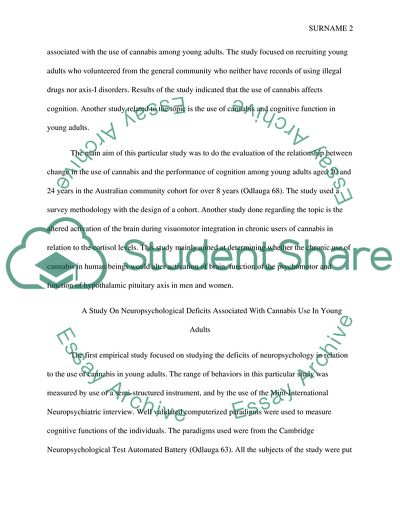Cite this document
(Effects of Cannabis on Cognition Coursework Example | Topics and Well Written Essays - 2250 words - 1, n.d.)
Effects of Cannabis on Cognition Coursework Example | Topics and Well Written Essays - 2250 words - 1. https://studentshare.org/medical-science/1787363-effects-of-cannabis-on-cognition
Effects of Cannabis on Cognition Coursework Example | Topics and Well Written Essays - 2250 words - 1. https://studentshare.org/medical-science/1787363-effects-of-cannabis-on-cognition
(Effects of Cannabis on Cognition Coursework Example | Topics and Well Written Essays - 2250 Words - 1)
Effects of Cannabis on Cognition Coursework Example | Topics and Well Written Essays - 2250 Words - 1. https://studentshare.org/medical-science/1787363-effects-of-cannabis-on-cognition.
Effects of Cannabis on Cognition Coursework Example | Topics and Well Written Essays - 2250 Words - 1. https://studentshare.org/medical-science/1787363-effects-of-cannabis-on-cognition.
“Effects of Cannabis on Cognition Coursework Example | Topics and Well Written Essays - 2250 Words - 1”. https://studentshare.org/medical-science/1787363-effects-of-cannabis-on-cognition.


